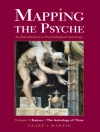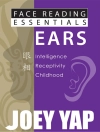This straightforward guide filled with compelling case examples and easy to use techniques will teach you to identify, reduce, eliminate, and prevent the negative effects of anxiety.
Anxiety, in different forms, affects almost everyone at one time or another. For spurring you to make decisions or perform, it can actually be helpful. But when anxiety gets out of hand, whether it’s from everyday stress or a severe chronic condition such as panic, posttraumatic stress, or overwhelming worry, you need to learn how to manage. Drawing on the field’s most well established and studied methods for reducing anxiety, Dr. Moore compiles them here in one source. Free from scientific jargon, this concise how-to book can be a ready reference on your desk or nightstand or in your backpack or briefcase.
You will learn how to tweak your daily schedule, your thinking patterns, and your reactions to the things you fear, for maximum gains in your life. While the book emphasizes self-help techniques, it also demystifies anxiety medications and offers guidance for finding professional help, should you need it.
Overcoming anxiety doesn’t have to be complicated. Following the step-by-step checklists and detailed plans in this book will get you on your way.
Table of Content
Acknowledgments
Anxiety: An Introduction
Index
About the Author
About the author
Bret A. Moore, Psy D, is licensed as a prescribing psychologist by the New Mexico Board of Psychologist Examiners and is board certified in clinical psychology by the American Board of Professional Psychology. Over the past 15 years he has treated thousands of patients suffering from anxiety with both psychotherapy and medication. He is the author and editor of 13 books, including
Anxiety Disorders: A Guide for Integrating Pharmacotherapy and Psychotherapy, Pharmacotherapy for Psychologists: Prescribing and Collaborative Roles, Handbook of Clinical Psychopharmacology for Psychologists, and
Treating PTSD in Military Personnel: A Clinical Handbook. His views on clinical psychology have been quoted in
USA Today, The New York Times, and
The Boston Globe, and on CNN and Fox News. He has appeared on NPR, the BBC, and CBC.












